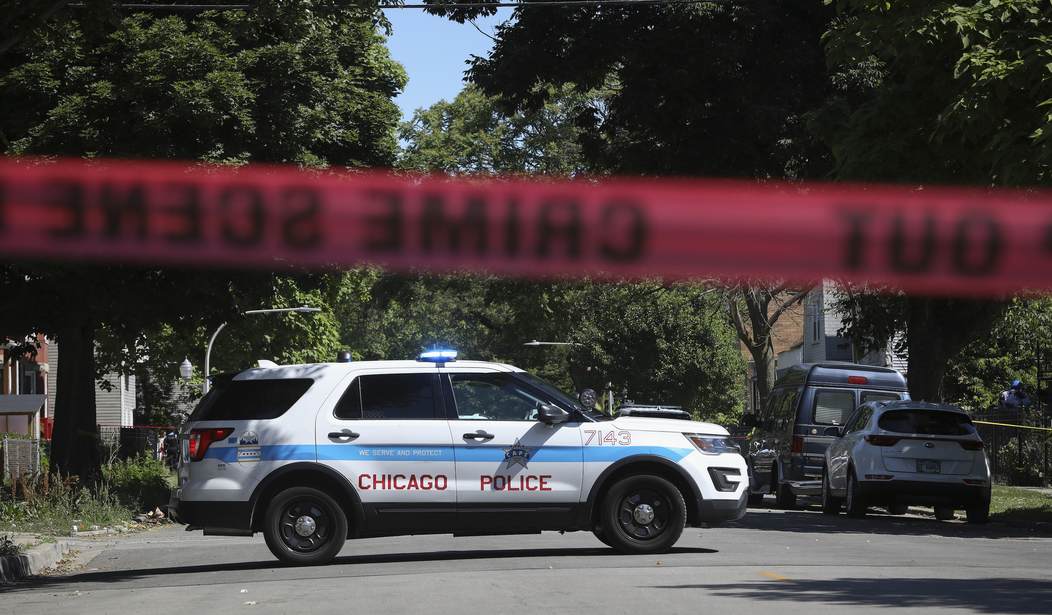One of the common features of community violence intervention programs is the use of former gang members and convicted violent offenders who’ve supposedly turned their life around to work with those are are headed down the wrong road themselves. There’s nothing wrong with these programs in theory, and as long as there’s oversight and accountability they can do good things.
All too often, however, those “former” offenders haven’t really left their old ways behind. Just a few weeks ago the head of an anti-violence program in New York pled guilty to drug and weapons charges after authorities accused him of being a part of a major cocaine trafficking operation in Orange County, for instance, and in Chicago a number of Ceasefire workers have been arrested over the years, charged with everything from selling heroin to possessing a gun after a felony conviction.
The most recent example also comes from Chicago, where a 49-year-old man who told police he works as an anti-violence activist is behind bars in Cook County after a local business owner accused him of attacking him with a baseball bat during a robbery of his store. As CWB Chicago reports, Fontane Lewis is currently facing charges of armed robbery and aggravated batter in connection with the incident.
Chicago cops who responded to a battery in progress call in the 3900 block of West Roosevelt around noon on October 30 said they found Lewis holding a baseball bat, which he put down at their request.
Once police arrived, the 56-year-old store owner stepped out, clutching his chest in pain. He told cops that Lewis had been coming into his store to demand payouts every week. A couple of weeks earlier, Lewis threatened to shoot him if he didn’t make a $250 weekly payment, the victim said, according to a CPD report filed with the court.
On October 30, the victim claimed he was locking up the store when Lewis arrived and demanded money. Lewis pushed, shoved, and struck the victim with the bat to keep him from going into the store while a second man went inside and took money from the register, the police report said.
The accomplice took another $1,000 from the victim, money that he brought along to pay a plumber, according to the report. Police said the victim told them the accomplice split the money with Lewis and fled before police arrived.
Fontane disputed the store owner’s account, claiming that he swung the baseball bat at the store’s security bars and that any contact was unintentional, though why he would have brought a bat into the store still remains a mystery and according to police, Fontane admitted to taking some of the money that was snatched by his alleged accomplice.
So far there’s been no confirmation that Fontane is a part of any formal anti-violence program or has been working with an alderman as he claims, but it wouldn’t be unheard of if that really was the case, even with Fontane’s extensive criminal history. CWB Chicago reports that Fontane was convicted of second-degree murder in 1994 and was sentenced to twelve years in prison, though he didn’t spend that entire time behind bars. In 2005 Fontane was acquitted on charges of murder and kidnapping, but was convicted of being a felon in possession of a firearm three years later. Fontane’s next conviction came in 2014 when he was found guilty of manufacturing and delivering cocaine, which earned him a ten-year sentence.
If Fontane had served the entirety of that sentence he’d still be behind bars today, but he told Chicago police he’s been working as an anti-violence advocate for about a year. If nothing else his arrest is another reminder that convictions in Illinois’s criminal justice system often come with an asterisk and the actual time served is far less than any sentence a judge imposes. If Fontane really was working as a “violence interrupter” for one of the non-profit community violence intervention programs operating in the city, however, his arrest raises some serious questions about what kind of vetting and oversight is being done to ensure that those “former” gang members and drug dealers really have turned a corner… and aren’t just using their new position to give them a little cover while they continue their life of crime.









Join the conversation as a VIP Member